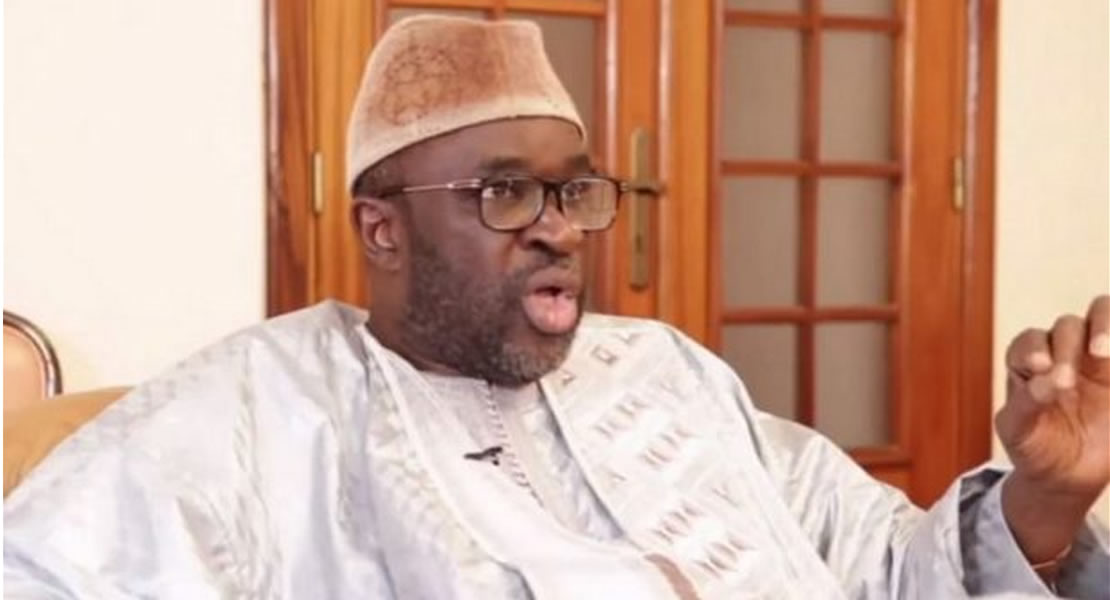
Speaker of the Economic Community of West African States (ECOWAS) Parliament, Mustapha Cisse Lo, has lamented over the increasing number of refugees especially Internally Displaced Persons (IDPs) in West Africa.
Speaking at a five day delocalized meeting of ECOWAS Parliament in Togo, the Speaker called for a more collaborative efforts to tackle the scourge situation and give hope to the victims.
The joint committees on Health and Social Services, Energy, Mines and Industry, Human Rights, Child protection and other vulnerable groups commenced on Tuesday in Togo.
Speaker Cisse Lo described the theme as apt, “contribution of International Organization and Non-Governmental Organizations towards the provision of Health care, Housing, and Food for displaced persons and refugees in West Africa: Parliamentary approach to the adoption of community standards”.
He further pointed out that despite the enormous efforts being made by the regional bloc and international organizations and support groups, the crises have lingered in most West African countries following political conflicts, the activities of jihadist group in Mali, Nigeria, Niger, Burkina Faso and other countries.
Also, the refugees and IDP crises are partly caused by inter-ethnic clashes and the climate change, which the region may not control.
“There are many inter-community clashes in our countries that lead to refugees and displaced people fleeing from one place to another. You also have the negative effect of climate change; you have floods and all that phenomenon that push people. You also have banditry, Jihadism, organized crime and people just have to flee from such places”.
Mr. Mustapha Cisse Lo, however, assured that the ECOWAS Parliament which is the interface between the executive and the national parliament of member countries, is working hard to ensure that model laws can be enacted to respond effectively to the scourge.
“We must coordinate and reflect on a more efficient mechanism to provide succor to the victims of displacements. We must therefore adopt Parliamentary standard and take concerted actions within the capacity of member states and in solidarity with our partners and the international community”.
Speaker of the Togolese Parliament, Yawa Djigbodi Tsegan, said refugees and displaced persons are the most vulnerable people in the World that have been denied basic rights of food and nutrition, education and health.
According to him, in recent times support for displaced persons and refugees are at the lowest ebb adding that it has become incumbent on the region especially the Parliament to have an approach and standard to address the menace.
She said ECOWAS, the International Organization for Migration (IOM), the United Nations High Commission for Refugees (UNHCR) and civil society organization are working together to ensure rights of people on the move are guaranteed and met.
“We must agree to have a better mechanism of sharing information and put other our tools together to achieve the purpose of tackling the challenges of vulnerable groups in our community, we must use available resources to tackle this scourge”, she said.
The number of refugees in the world is rising again, according to the June 2018 report of the office of the United Nations High Commissioner for Refugees, with more than sixty-eight (68) million people uprooted in 2017, and for the fifth year in a row, wars, violence and persecution have pushed up forced displacement across the world, and developing countries are the most heavily affected.
According to reports, some 10.9 million Nigerians living in the three most affected states in Northern Nigeria are in need of humanitarian assistance. More than 228,000 refugees fled to Cameroon, Chad and Niger.
Refugees who have fled their countries to escape conflict and persecution account for 25.4 million of the 68.5 million uprooted people increase of 2.9 million from 2016 and also the largest increase ever recorded by UNCHR for a single year.
Internally displaced persons number 40 million, slightly less than the 40.3 million internally displaced in 2016.
The situation in Africa in not rosy, particularly in sub-Saharan Africa, which is more home to more than 26 percent of refugees worldwide because of the current crises in this region. Thus, all ECOWAS member states are faced with the challenge of refugees and displaced persons.
Kwaku Sakyi-Danso/ghanamps.com